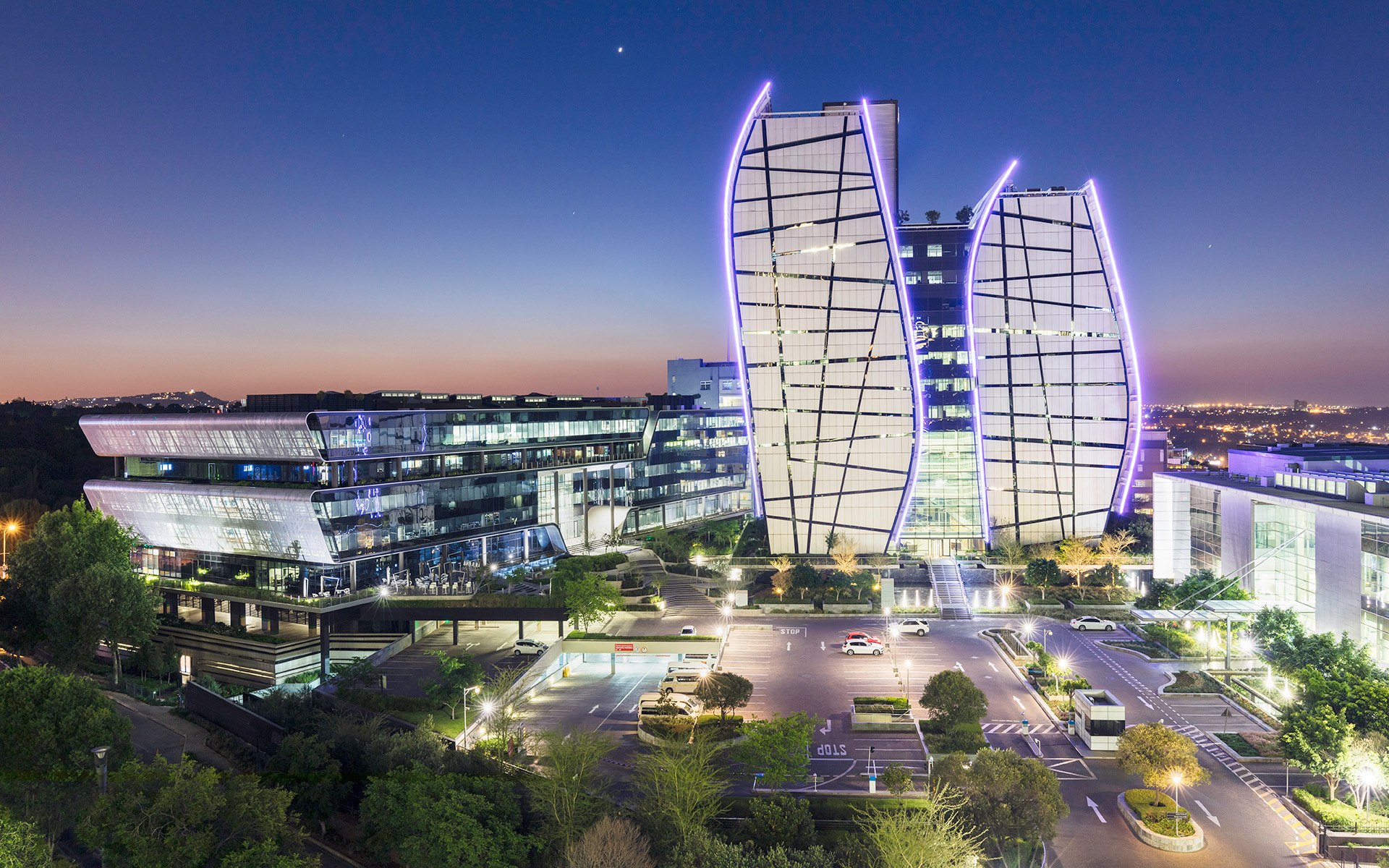Johannesburg is Southern Africa’s financial and mobility hub with a population drawn from across the continent, but it’s also navigating a changing landscape.
City Class Score
| Commercial Hubs | |
| Export Champions | |
| Mobility Connectors | |
| Climate Resilient |
Corporate HQs, MNC presence, branded outlets, hotels, manufacturing, start-up ecosystem,
transport linkages, population, and income.
Go to the class information
Manufacturing, industrial parks, export share and share change by category, air and port
infrastructure, freight time to market, trade agreements, and expert interviews.
Go to the class information
Passenger traffic, flight connectivity, air-cargo flights, port infrastructure, container
ship sailings, and major road networks.
Go to the class information
Coastal and river flooding, extreme rain, extreme heat and humidity, cyclones, and water
scarcity.
Go to the class information
Johannesburg’s commercial allure has long attracted people from all corners of
Africa and beyond. The city’s fabulous food scene mirrors this diversity. Venture into the Maboneng
Precinct, alive with cafés and art galleries, where restaurants serve everything from traditional
African braai to delicious Ethiopian injera. Alternatively, swing by the Market on Main to sample
local street foods like bunny chow or crispy samosas while listening to a tapestry of languages.
It’s a city that captures the continent’s entrepreneurial spirit.
Johannesburg is already a
well-established commercial hub that may yet benefit from several megatrends. First is the
reconfiguration of global supply chains as manufacturers seek new sourcing destinations, including
in Africa. The rise of mid-tier cities in emerging markets, along with the increasing demand for
minerals essential for the global energy transition, also plays to Johannesburg’s strengths as the
financial heart of commodity-rich South Africa. However, realizing this potential will require
further structural reform, as well as resolving energy and water shortages that have more recently
challenged business.
The existing strength of Johannesburg lies in its dual role as a
corporate powerhouse and a mobility connector for Southern Africa. It is home to the continent’s
largest stock market and serves as the headquarters for two-thirds of the country’s listed
companies, including giants like Naspers, Standard Bank, and Anglo American. The city’s
international airport boasts more global flight connections than any other city in Southern Africa —
twice as many as its nearest domestic competitor, Cape Town. It is also one of the continent’s
busiest by passenger numbers, matched only by North Africa’s tourist hot spots.
The city’s
manufacturing sector is also the largest in the country. Together with neighboring Ekurhuleni, these
two cities account for 32% of manufacturing jobs. However, policymakers face emerging challenges,
such as weak investment and rising costs alongside energy and water constraints, that must be
addressed to keep the sector a key driver of growth. Additionally, Johannesburg faces healthy
competition from domestic peers, particularly Cape Town and Durban. In this regard, Johannesburg
shares more similarities with São
Paulo than with Jakarta;
it is a regional financial and transport hub, but it must continue to evolve to thrive.

